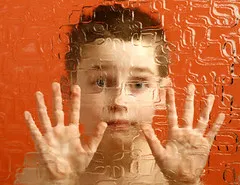Table of Contents
[…] An international study released today shows only one in five autistic New Zealanders feel accepted by the people around them.
Autism advocates say stigma is common, and workplaces have a long way to go to accommodate people with autism.
When Joanne Dacombe told her workplace she was autistic, she said the way co-workers treated her changed.
“All of a sudden it was like, there was othering – like I’m going to put you over there in that category. It was like a batting away.
[…] She is now president of the Disabled Persons Assembly, and said autistic people still faced a lot of stigma outside of advocacy spaces.
“It makes you feel very uncomfortable, very unaccepted. When there’s acceptance, that really great as far as it goes, but when there’s not acceptance, that can be quite a hostile and isolating environment.”
Not surprising.
According to Autism NZ, there are 96,000 New Zealanders diagnosed with autism – and the study released today shows just one in five of them feel they are accepted.
[…] Report co-author Dr Ruth Monk, a University of Auckland research fellow, said they were not surprised by the statistic.
[…] They said the barriers autistic people faced in education and employment showed the lack of acceptance for autism.
Dr Monk said there had been moves towards more accepting workplaces, but there was some way to go.
[…] Rory Hennessy is a self-employed lawyer – and said working for himself meant he could better accommodate his autism.
[…] “Unfortunately, a lot of people on the autism spectrum don’t work. So I’ve been very very lucky in the way I’ve gone about it.”
Internationally, it is estimated than only about 20 percent of people with autism were in full-time employment.
Some stats have it as high as 30 per cent.
After he first graduated, Hennessy said his autism made job interviews more difficult.
“It was a real struggle to even get an interview, and when I did get an interview, I would blank completely and I wouldn’t know how to answer.”
Interviews are a major reason why the unemployment level is so high. A typical job interview simply does not accommodate those on the spectrum
Dacombe said some workplaces thought autistic people were too hard to work with, and to make accommodations would be too costly – but that was borne from a lack of understanding.
“We might stim – for example we might pace, or use fidget toys, or avoid connecting with people over small talk. We can be considered too loud in many ways for some people, or be considered blunt or rude.”
Or not ‘social’ enough, i.e., “We just don’t think you’ll fit in our team and that’s why we’re not hiring you.”
Dacombe said she had to mask everyday – covering up behaviours seen as autistic – to be taken seriously.
[…] And she said listening to autistic people about what they needed – and what they offered – was important.
Many of those on the spectrum end up being self-employed and some do really well – like the Elon Musk, Steve Jobs, Bill Gates etc. Some do really well in the arts.
Then there’s the idea that autism is a ‘gift’. For some, yes. But for the vast majority, no. Not even close.
But perhaps one of the most offensive ideas is that because those on the spectrum have difficulty showing empathy they lack empathy. In fact the opposite is true, with research suggesting that “individuals with ASD may have heightened emotional sensitivity, experiencing emotions intensely and empathizing deeply with others”. This is of course something that any parent with an autistic child can attest to.
Overall, though, it’s encouraging to see the media finally paying attention to this issue. Who knows, some time in the future we might even start seeing ‘autism’ ticks on company websites, just after the ‘rainbow’ ticks of course.






